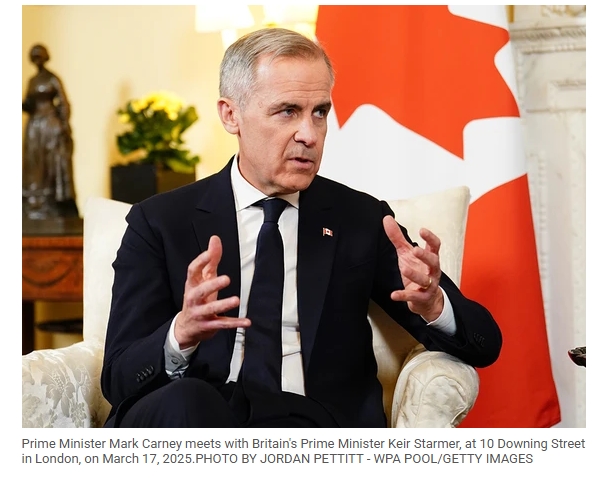By Conrad Black
 The author begins with a paean to the virtues of humility, the quality which he tells us swaddles his work and inspires his personality. His basic premise is a sequence of connected propositions: it is a matter of existential urgency for Canada to achieve net zero carbon emissions as quickly as possible, failing which all human life will be in danger. In seeking this difficult goal, we must inspire ourselves with the example of the country’s and the world’s response to the Covid pandemic. And in order to sustain the economic hardship implicit in such objectives, we must keep constantly in mind that we must rise above the temptation of excessive materialism because economic value does not equal human value and while markets are important, they are amoral and in humanitarian terms, they are neutral. And because, Carney writes, the continuation of life on this planet requires the adoption of his views, we should see this as a huge opportunity for Canada: not only a humanitarian opportunity, but ultimately an economic opportunity. The reward for our virtue will not only be conscientious reinforcement, but ultimately pecuniary enrichment as well.
The author begins with a paean to the virtues of humility, the quality which he tells us swaddles his work and inspires his personality. His basic premise is a sequence of connected propositions: it is a matter of existential urgency for Canada to achieve net zero carbon emissions as quickly as possible, failing which all human life will be in danger. In seeking this difficult goal, we must inspire ourselves with the example of the country’s and the world’s response to the Covid pandemic. And in order to sustain the economic hardship implicit in such objectives, we must keep constantly in mind that we must rise above the temptation of excessive materialism because economic value does not equal human value and while markets are important, they are amoral and in humanitarian terms, they are neutral. And because, Carney writes, the continuation of life on this planet requires the adoption of his views, we should see this as a huge opportunity for Canada: not only a humanitarian opportunity, but ultimately an economic opportunity. The reward for our virtue will not only be conscientious reinforcement, but ultimately pecuniary enrichment as well.First published in the National Post
- Like
- Digg
- Tumblr
- VKontakte
- Buffer
- Love This
- Odnoklassniki
- Meneame
- Blogger
- Amazon
- Yahoo Mail
- Gmail
- AOL
- Newsvine
- HackerNews
- Evernote
- MySpace
- Mail.ru
- Viadeo
- Line
- Comments
- SMS
- Viber
- Telegram
- Subscribe
- Skype
- Facebook Messenger
- Kakao
- LiveJournal
- Yammer
- Edgar
- Fintel
- Mix
- Instapaper
- Copy Link







One Response
He’s beginning to look more and more like Michael Ignatieff as each part of his political life comes under the spotlight.
Liberals think they can get away with parachuting in “hewn from stone” saviors but they don’t change the party’s playbook.
They’ve got lazy and arrogant in power and Canada has lost any clout it once had.
We need to wake up and elect someone who can bring back the country’s pioneering economy.
Most of our manufacturing, shipbuilding, mining and forestry industries have been treading water for the last decade or so because we fall at the feet of the environmentalists, the climate change bleaters and the indigenous land claims.
Canada is still a wonderful country and I love living here ….but it’s been run so badly under the leash of this clueless government.